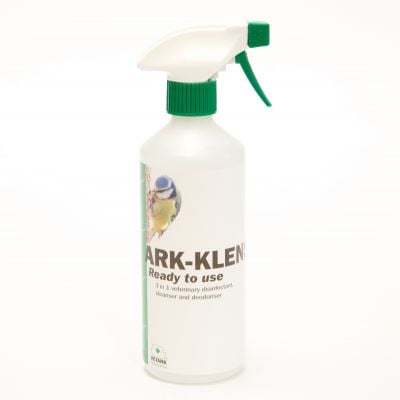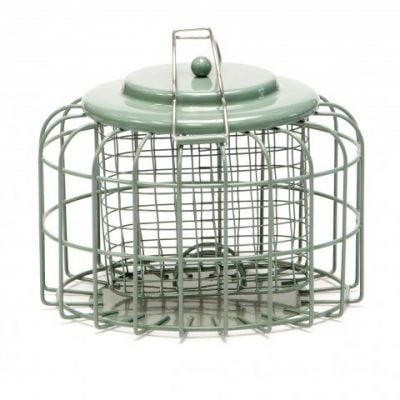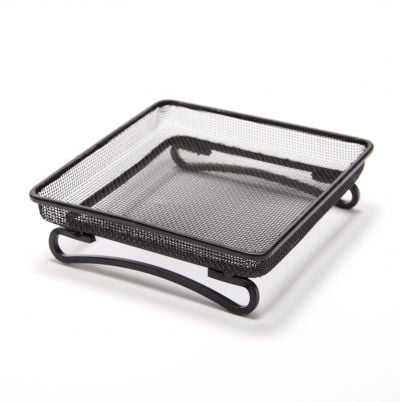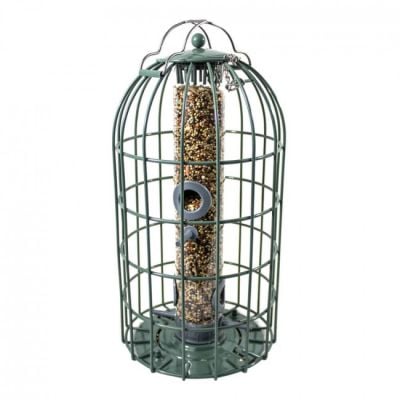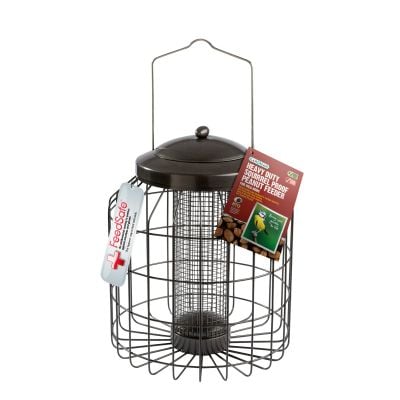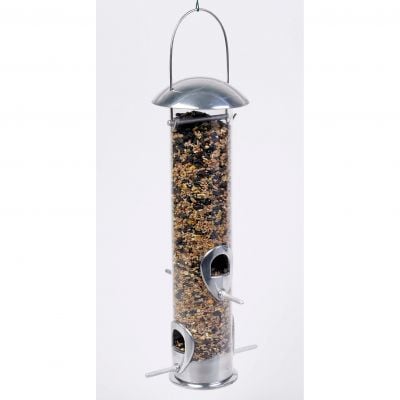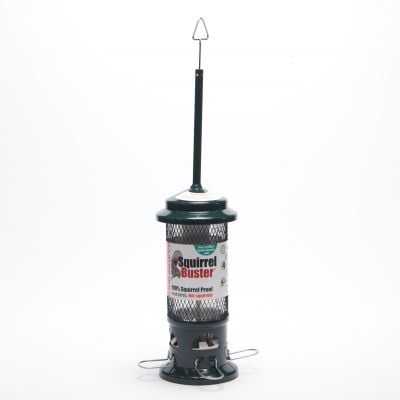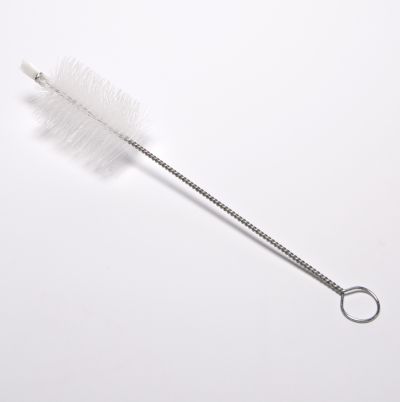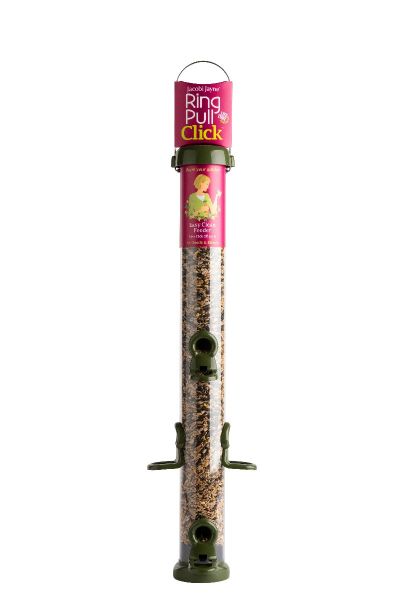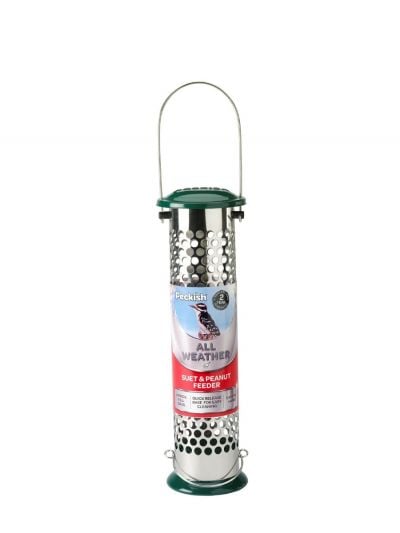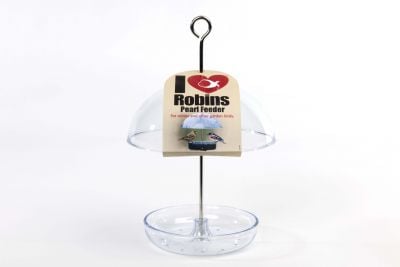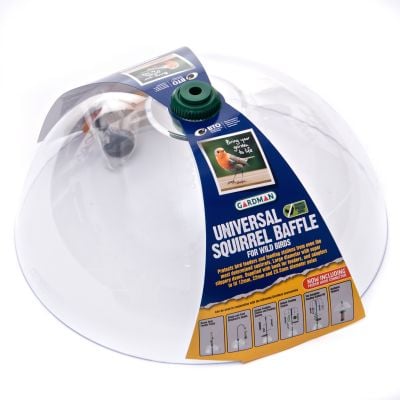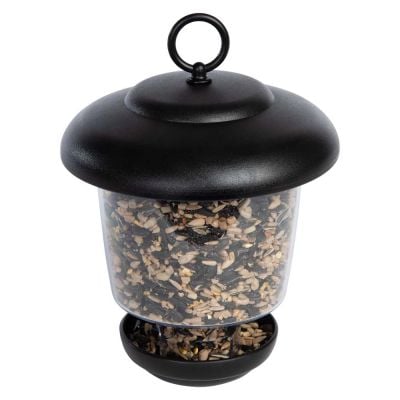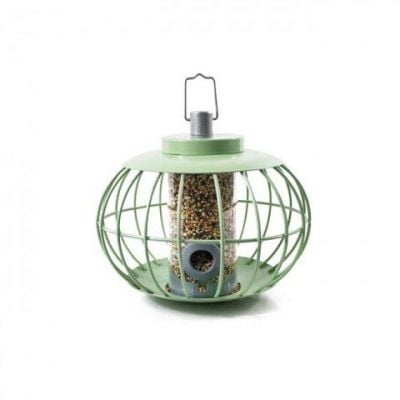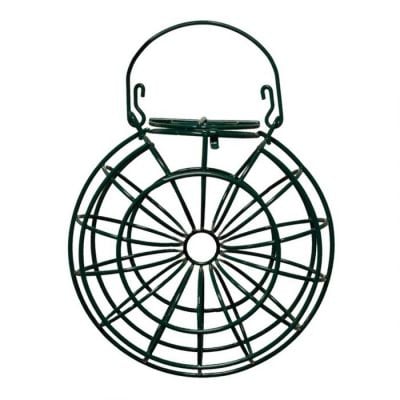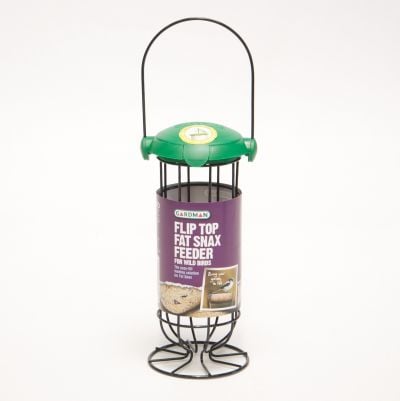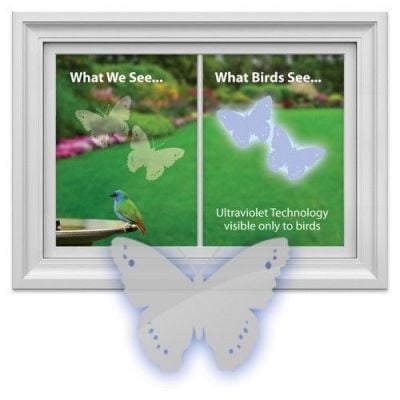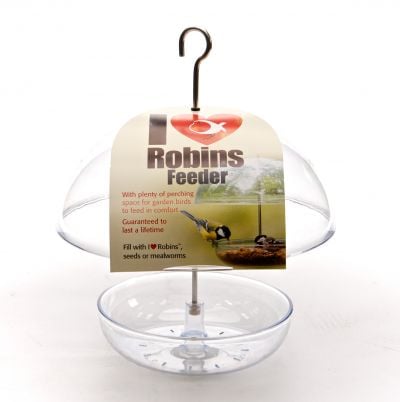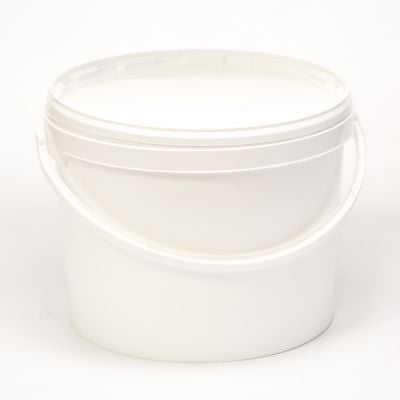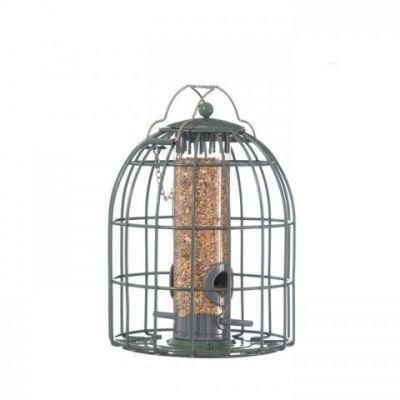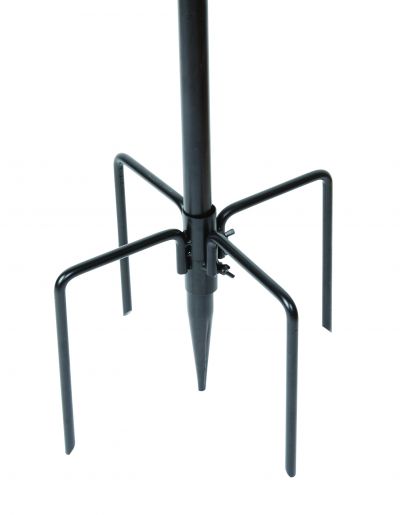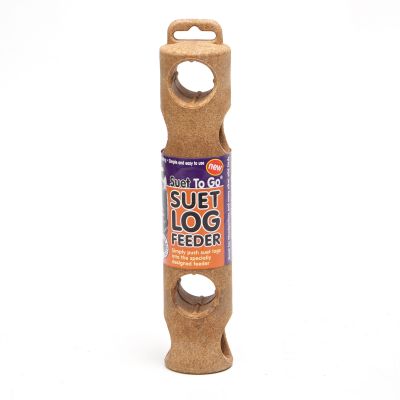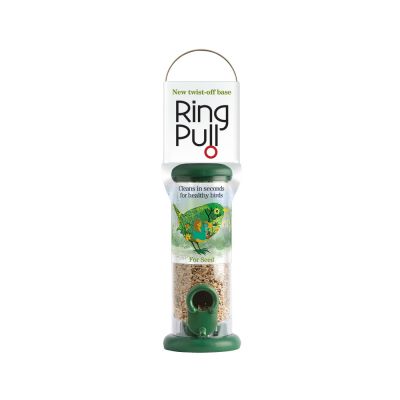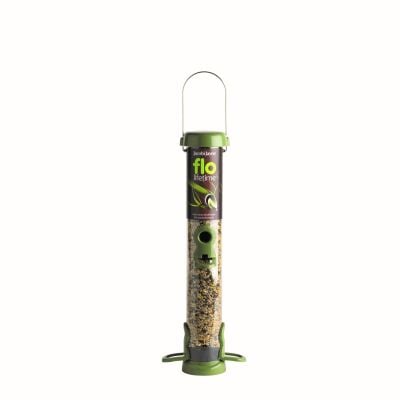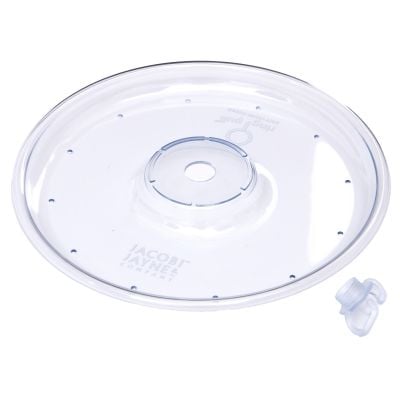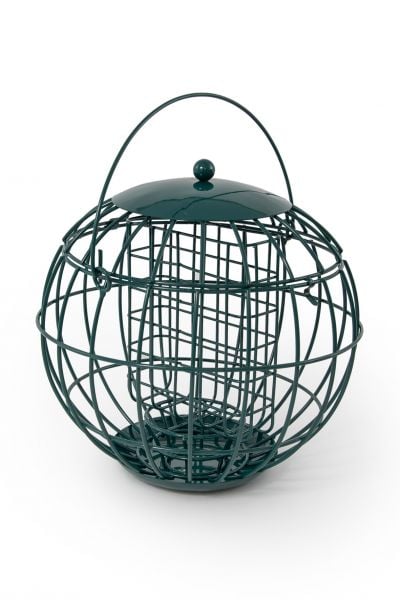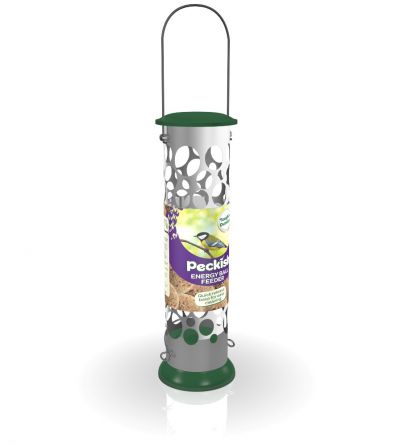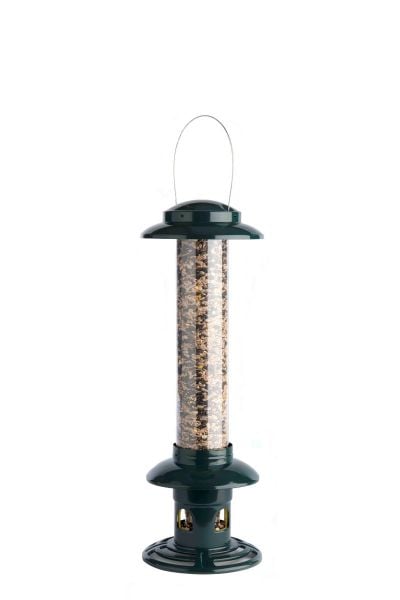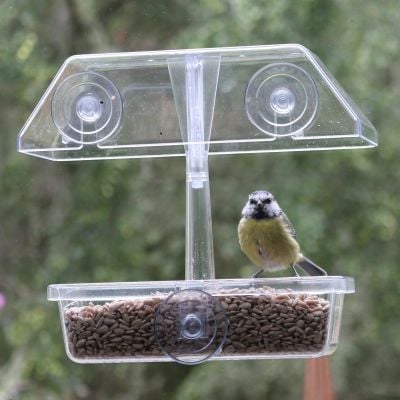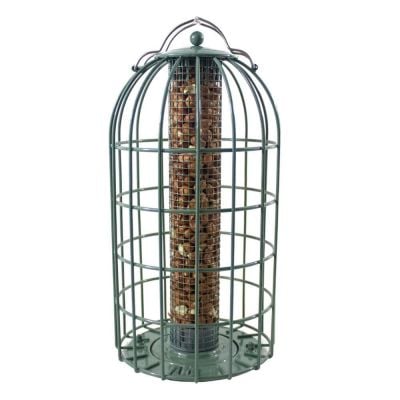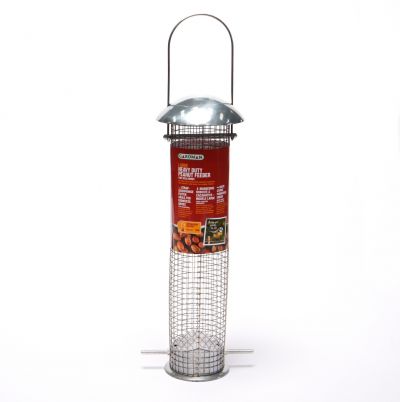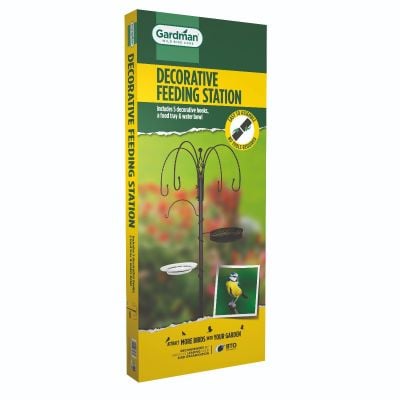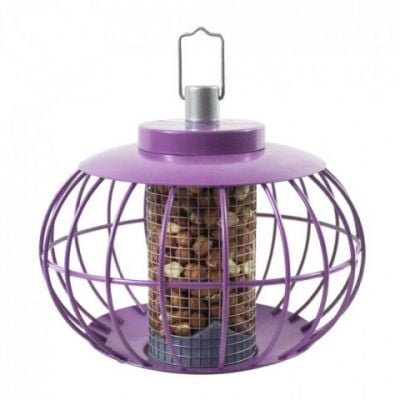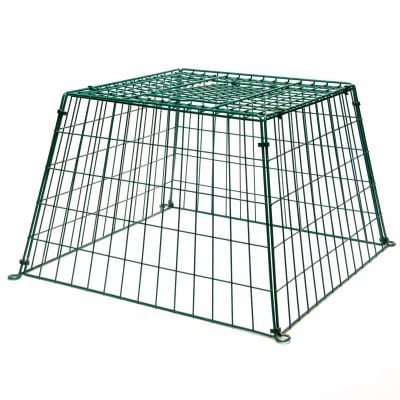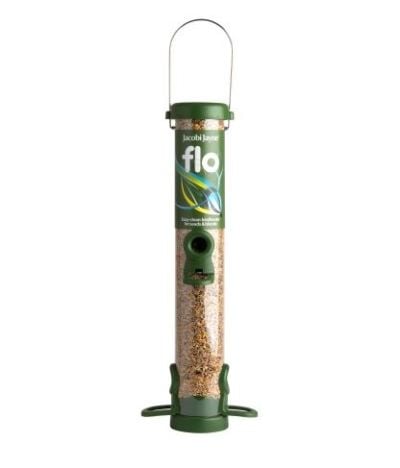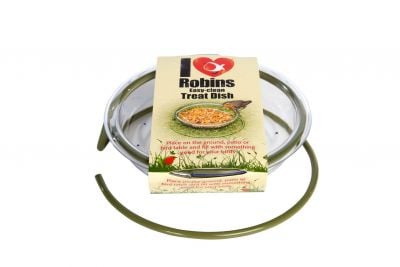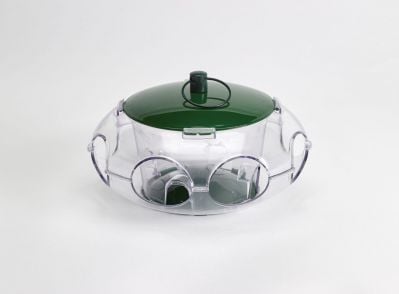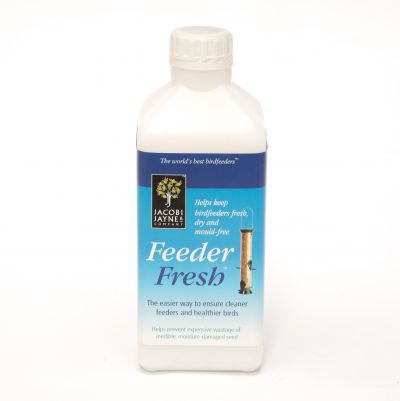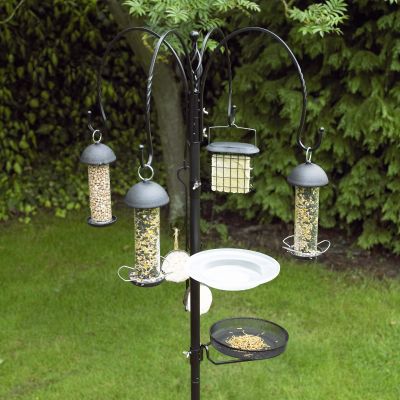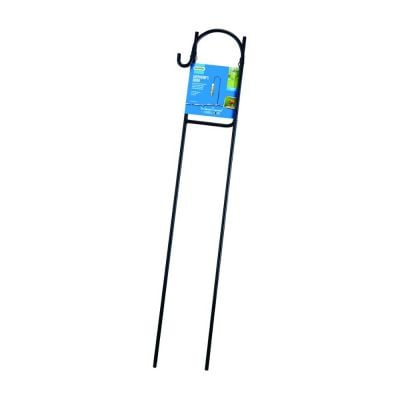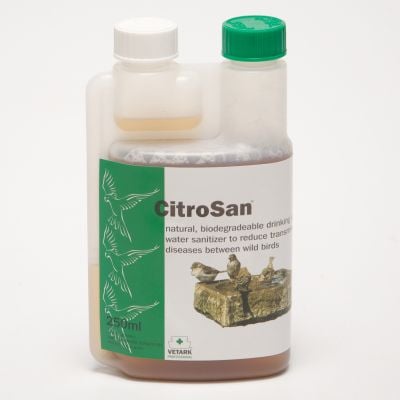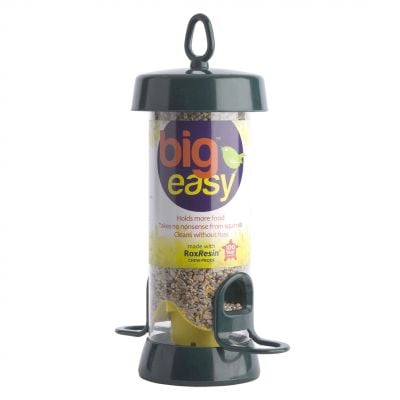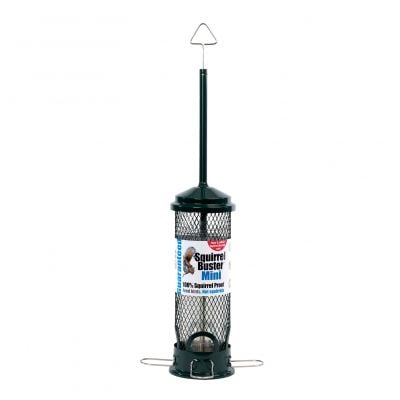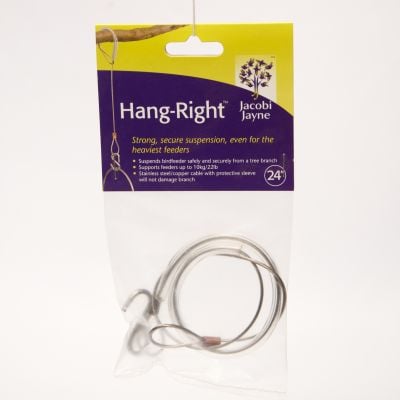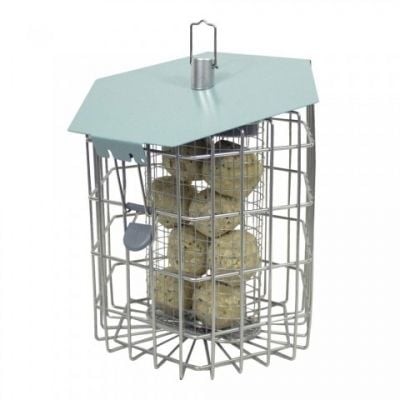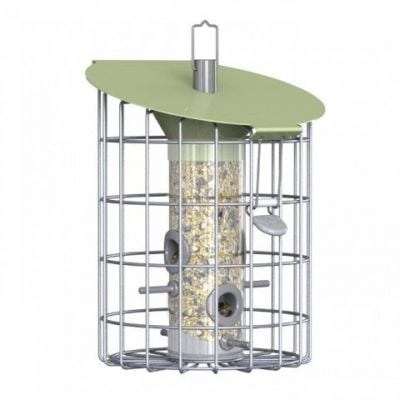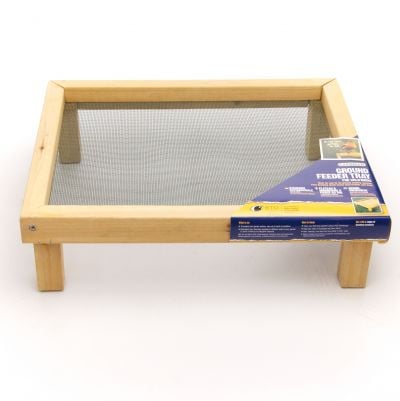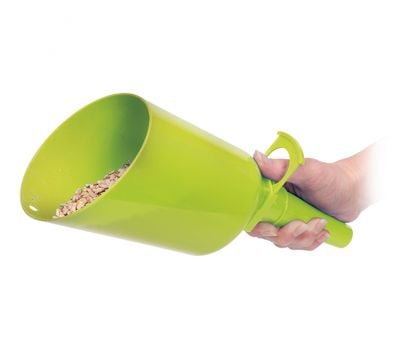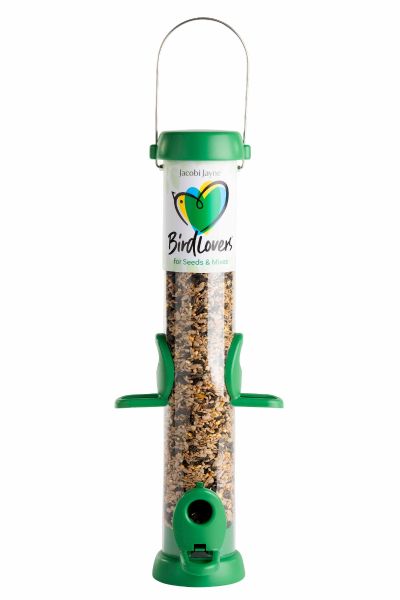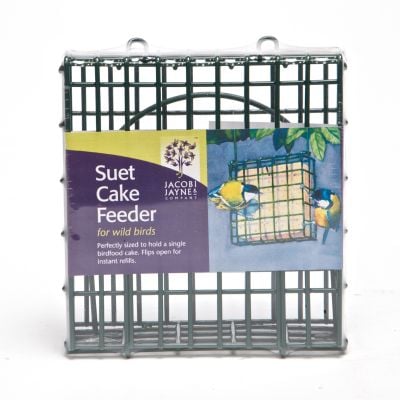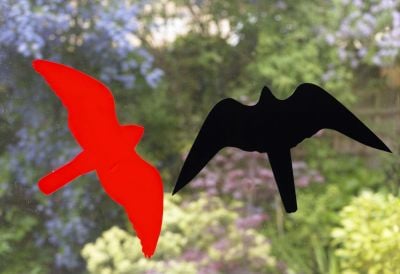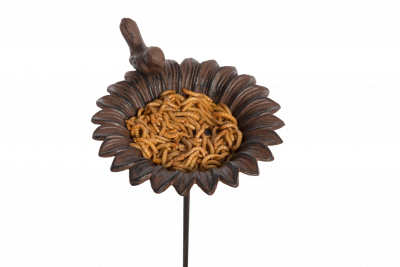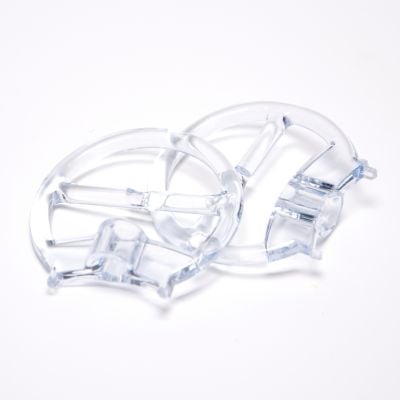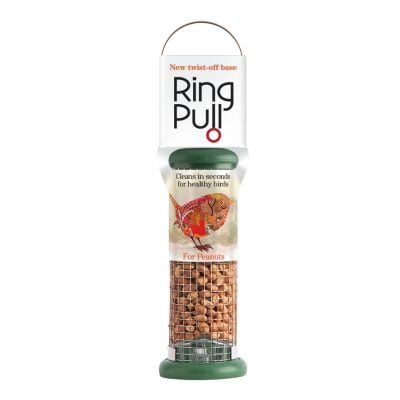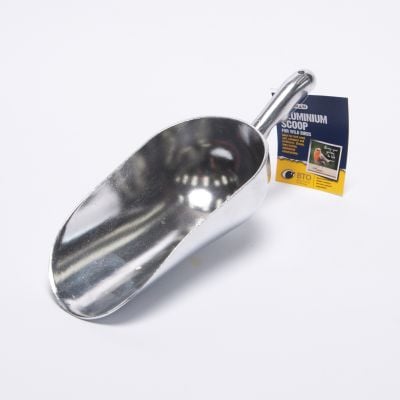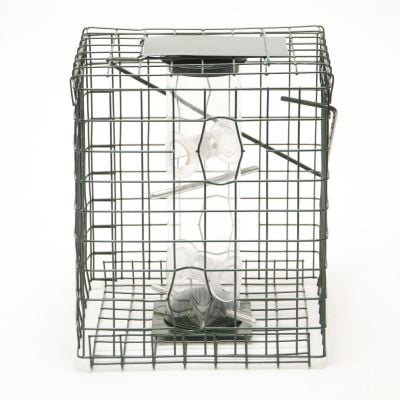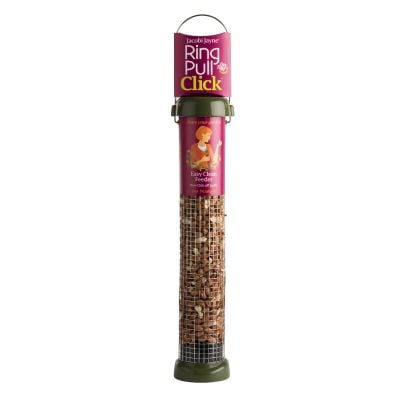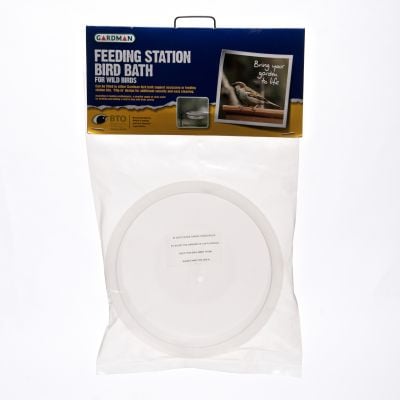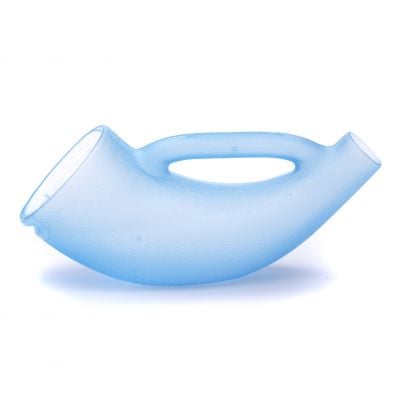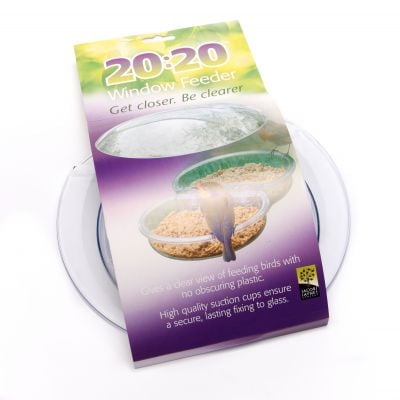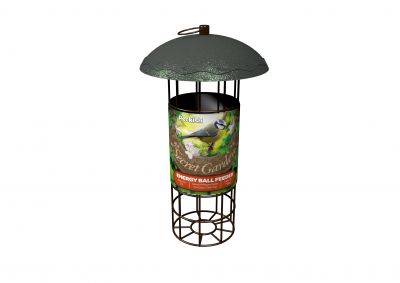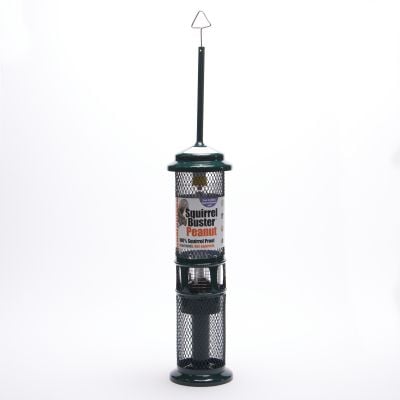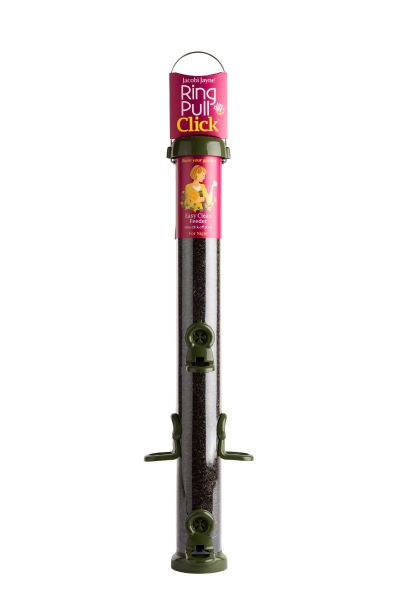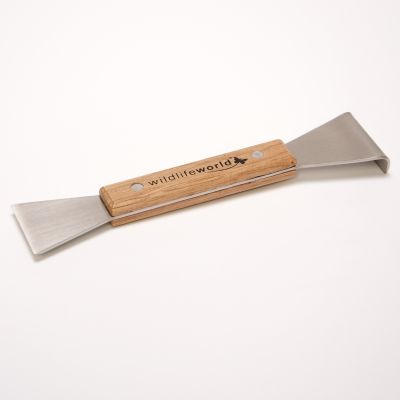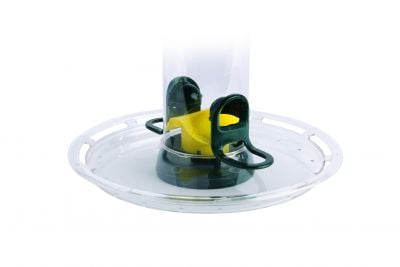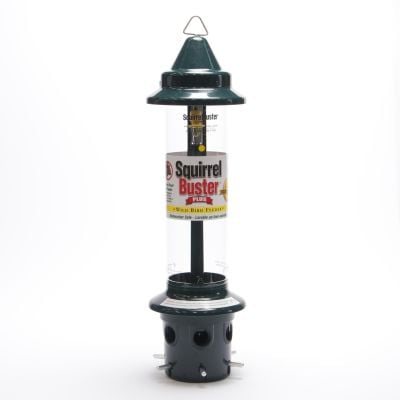FAQS
There are many different types of bird feeders for gardens. These include those designed to hold peanuts or suet pellets, and seed feeders designed to hold bird seed mixes. Others are available for tiny niger seeds, live food or suet blocks. There's also a range of ground feeders suitable for ground feeding birds which are suitable for foods like sunflower hearts, suet pellets and husk-free mixes.
Different species of wild bird will choose to feed on different feeders. For example, finches and tits, including Blue tits, tend to opt for hanging feeders, as these usually contain bird seeds, such as straight or mixed seeds. Whereas, Blackbirds and Robins -- which are both ground feeding birds -- prefer lower feeders that can hold a variety of wild bird foods such as sunflower hearts and suet pellets.
Different types of feeder include:
- Peanut feeders
- Caged feeders
-Mealworm feeders
- Niger seed feeders
-Suet feeders (suet ball feeders, and suet block feeders)
-Squirrel proof feeders
-Bird tables
- Ground trays
There is no specific 'best bird feeder' because the type you need depends on the wild birds you want to attract to your garden and the type of bird food you are feeding them.
We stock different types of bird feeder, including platform, hanging, ground and window feeders.
Generally speaking, good bird feeders are made from high-quality, durable materials meaning they will last you a good while. The best bird feeders are also easy to put together and take apart, so that they can be easily cleaned. Cleaning feeders is very important for maintaining a healthy and diverse group of garden birds.
At Vine House Farm, we stock a range of bird feeders that are suitable for smaller birds. Some of these are caged, to keep out squirrels and/or bigger birds. If you want to allow small birds to feed in your garden then these are an ideal option.
The best bird seed feeder for you depends on two factors: the kinds of birds you want to attract to your garden, and the types of food you want to feed them.
These two factors are entwined; the seeds you put out for birds determine which species of garden birds you will be able to feed.
Small seeds, such as millet, attract mostly Dunnocks, some species of finch, Collared doves and House sparrows, and Greenfinches prefer black sunflower seeds or other larger seeds.
Soft-bill birds that are unable to consume large whole seeds because of their beaks -- like Blackbirds and Robins -- prefer flaked maize, sunflower hearts or chips.
You should typically hang feeders in a place that is away from predators and isn't too noisy. Birds are timid and easily frightened, so feeders placed in places near lots of traffic/with people passing close by won't attract as many wild birds.
The best place to hang feeders for wild birds is usually on a tree branch. This allows birds to see incoming predators such as sparrowhawks, and is also out of the way from animals suchs as cats that could hide and pounce at them.
Often, squirrels can easily access hanging bird feeders and tree feeders, as they are agile.
If you have had issues with squirrels, or you are worried about them accessing your bird food, the best option is a squirrel proof bird feeder.
We stock a whole range of feeders to keep squirrels (and larger birds) out, which allows small garden birds to feed without being frightened away.

